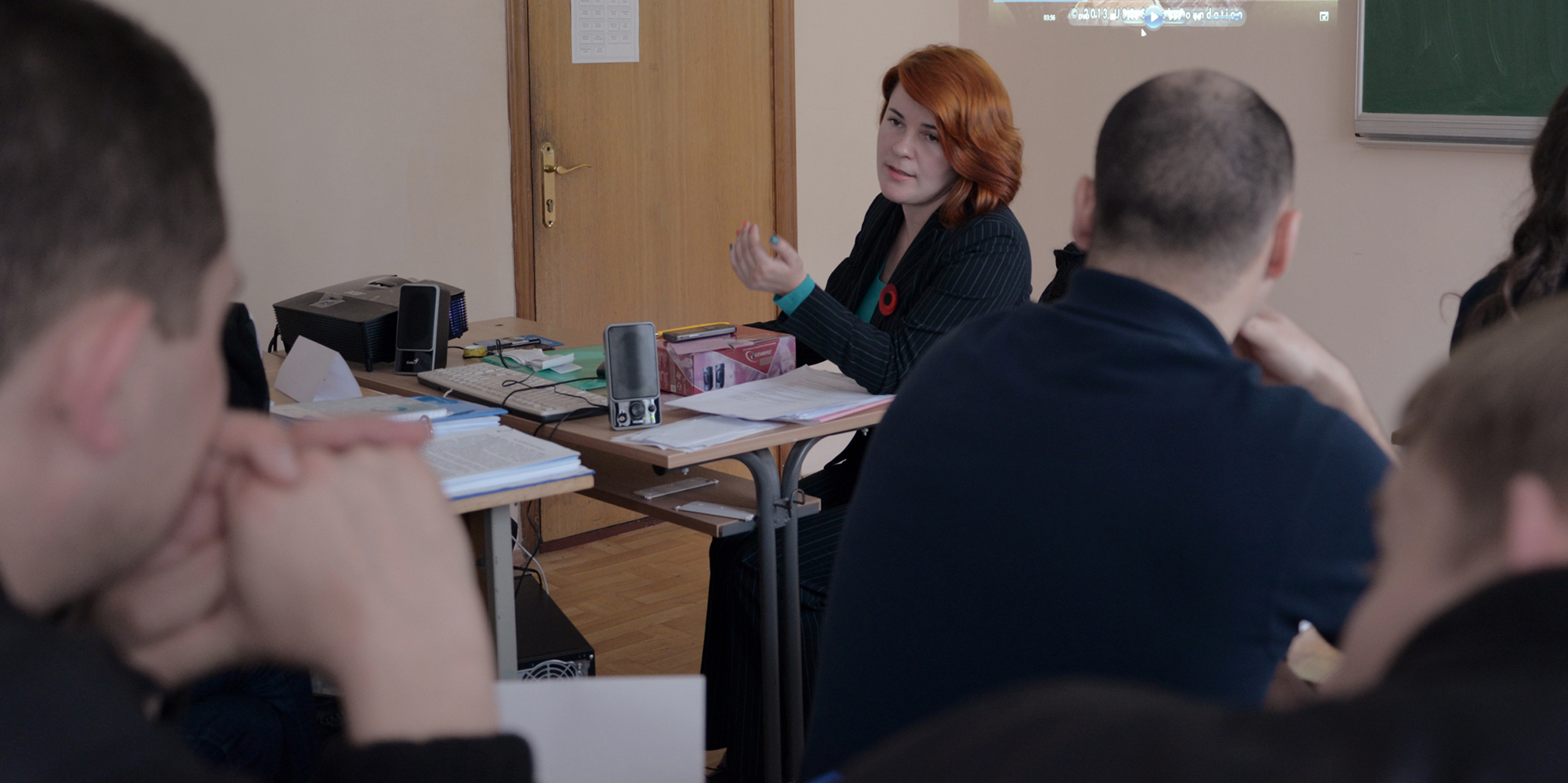USC Shoah Foundation Educational Resources Included in Ukrainian Conference on Roma in the Holocaust

Anna Lenchovska, USC Shoah Foundation regional consultant in Ukraine, shared some of the Institute’s unique educational resources at the National Museum of the History of Ukraine in the Second World War’s first ever conference on the fate of the Roma during the Holocaust.
The conference “Genocide of the Roma During World War II: Research, Education and Commemoration,” held Oct. 4 at the museum in Kiev, drew educators, students, decision makers, second-generation survivors, and researchers to discuss the mass extermination of Roma people during the Holocaust and its continued effects on Roma communities today.
Lenchovska presented USC Shoah Foundation’s educational guidelines on teaching with testimonies with a special focus on the Roma survivor testimonies in the Visual History Archive.
She presented the Italian-language resource Giving Memory a Future, which was produced by the Institute in partnership with Catholic University of the Sacred Heart in Milan. The site uses testimony clips and other historical sources to explore the history and current issues facing Roma and Sinti communities in Europe.
She also presented Encountering Memory, a Ukrainian-language educational guide that accompanies the Institute’s 2006 documentary film "Spell Your Name" for secondary educators. In “Spell your Name,” Ukrainian Holocaust survivors describe the 1941 Babi Yar massacre, in which nearly 100,000 Jewish civilians were murdered by German forces.
Finally, Lenchovska presented the Where do Human Rights Begin: Lessons of History and Contemporary Approaches teacher guide. Where do Human Rights Begin: Lessons of History and Contemporary Approaches consists of 10 modules highlighting the rights guaranteed by the United Nations’ Universal Declaration of Human Rights along with historical reviews of human rights violations in Nazi Germany and Stalin’s USSR and also analyses of recent cases from the European Court of Human Rights. The guide is designed for secondary school teachers across a variety of disciplines, including history, law, civic education, and psychology, as well as specialized civics courses for pre-service and in-service education, seminars for university students and extracurricular activities.
Lenchovska shared some results from evaluation of these resources as well which demonstrate the effectiveness of these resources in educating students. She is hopeful that these educational, testimony-based resources could help reduce the intense discrimination that Roma face in Ukraine today.
Like this article? Get our e-newsletter.
Be the first to learn about new articles and personal stories like the one you've just read.